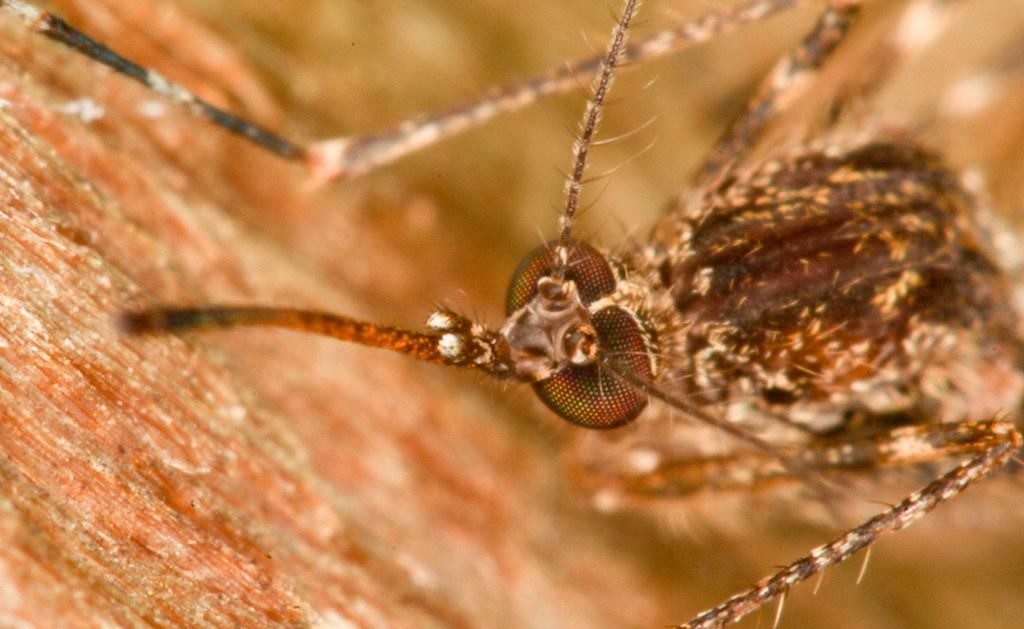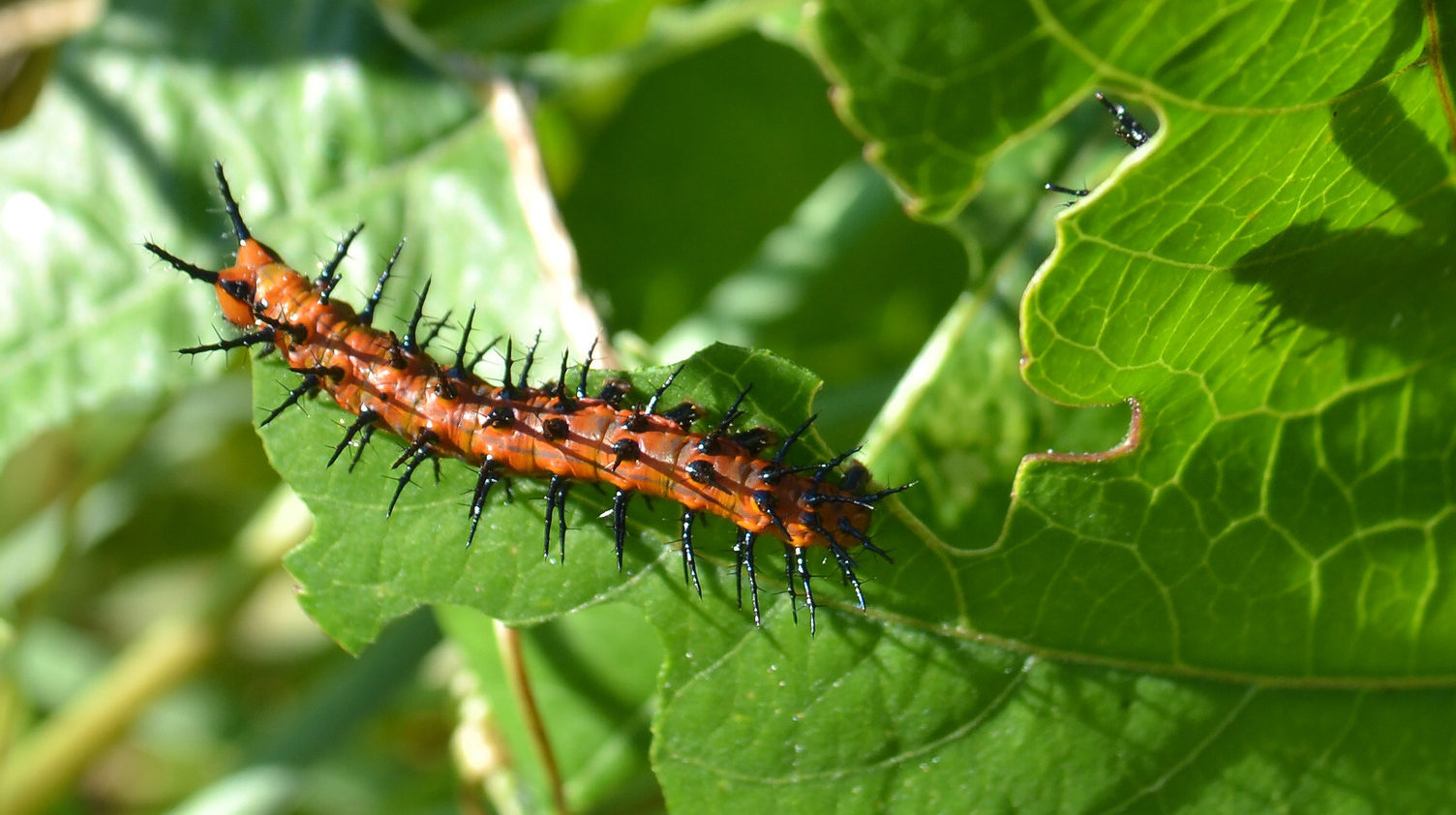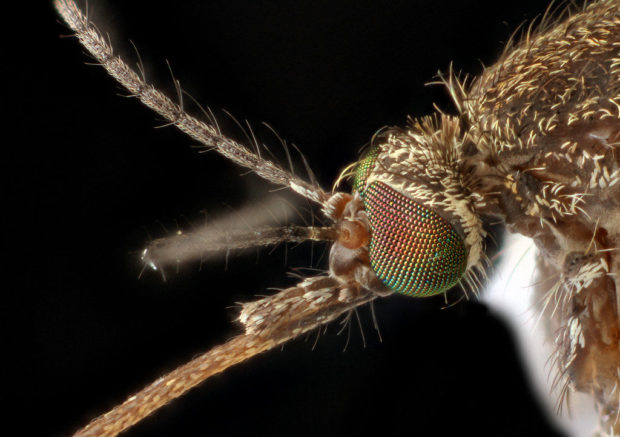We have much more to do and your continued support is needed now more than ever.
Innovations in Mosquito Control
Part 1: Essential Oil Sprays and Nanotechnology

While we enjoy sunshine and vacations, it may seem that mosquitoes serve no other purpose than to ruin our summer fun. While that is not true, mosquitoes can be vectors for harmful viruses, including Dengue, Zika, and West Nile Virus—even in the United States, and controlling mosquito populations is a matter of public health.
Historically, we have tried to solve the mosquito problem with heavy use of synthetic chemical pesticides which have been proven to be highly toxic to other insects, including important pollinators, like bees. Fortunately, mounting pressure from environmentally-minded citizens has inspired scientists to investigate innovative solutions to the problem of mosquito control in recent years.
From nanotechnology to predator biocontrol to genetic solutions, scientists have made incredible strides in effective, environmentally-friendly mosquito population control methods. In this three-part blog series, we’ll explore a few exciting avenues of research currently under investigation.
First up, some exciting new developments in making essential oil repellents more effective.
Essential Oil Sprays and Nanotechnology
Essential oils are a complex, volatile compound created by metabolic processes in certain plants like thyme, cedar, patchouli, and peppermint. They are produced in plant tissue as a natural pesticide against herbivorous insects, and are released into the air when the plant tissue is broken (as in, chewed on by an insect). Once dispersed into the air, this natural pesticide binds to sensitive receptors on the insect’s mouth or antennae, causing them to become disoriented and leave the area.

No plant has these natural defenses against mosquitoes specifically, because mosquitoes do not eat plant leaves. They eat flower nectar or, in the case of a female about to lay eggs, blood. But luckily for us humans, mosquitoes are still affected by these natural repellents because they evolved from a plant-eating ancestor and never lost sensitivity to essential oils. And that makes essential oils an attractive, natural alternative option for mosquito control.
How Effective are Essential Oils at Repelling Mosquitoes?
Unfortunately, simply planting essential oil-producing plants will not provide protection from mosquitoes. Because mosquitoes do not chew on plant leaves, there is no natural way for them to rouse the release of repellent oils. One tactic is to simulate an insect chewing by crushing or bruising leaves by hand, twice a day, for at least ten plants—but this has only been proven to provide sufficient repellence in just a few plant species so far, none of which are native to North America, and in just a small area the size of a typical rural hut.
Although simply rubbing crushed leaves on your skin or burning leaves in an area can provide a small amount of protection by breaking down plant tissue, essential oils in their raw form do not make especially potent repellents. Repellent sprays made with highly concentrated distilled oils are far more effective—some, like citronella-based repellents, are even as effective as DEET. But because essential oils are highly volatile, meaning they dissipate quickly, they usually only last a few hours.
Nanotechnology Improvement in Essential Oils
Fortunately, new developments in nanotechnology have allowed scientists to begin achieving slower rates of release of potent essential oil repellents, especially those that are citronella-based. One promising method is called high-pressure homogenization, where scientists use nanotechnology to blast microdroplets of distilled citronella into larger drops of glycerol. Stabilized and positioned evenly in a glycerol matrix, the citronella droplets are released more slowly after the repellent spray is applied, providing excellent protection from mosquitoes for several hours.

Another method is microencapsulation, a technology where essential oils are encapsulated in a shell of stabilizing particles. The shell can be made of either natural or synthetic compounds such as Arabic gum, agar, alginate, or proteins, and extends the period over which the repellent is actively repelling mosquitoes.
Using this method, scientists have developed cotton fabric sprays that provide 90% repellency for over three weeks. And treating microencapsulated citronella with titanium dioxide nanoparticles causes the repellent to become sun-activated. This is important in African countries where many mosquito species are active during the day, but could potentially be helpful for repelling invasive, daytime-feeding tiger mosquitoes in North America.
These new developments show a promising future for natural, plant-based mosquito repellents. In the meantime, essential oil repellents, although relatively short-lived, can still provide an effective natural alternative to synthetic sprays. Citronella, pine, North Indian rosewood, peppermint, and loop-root mangrove essential oils are the most effective against mosquitoes.
Be aware that some natural repellents are safer than others, so it cannot be assumed that natural equals safe. For example, anise, basil, cajeput, nutmeg, and rosemary essential oils contain carcinogens and should potentially be avoided.
This is one example of many exciting advancements in technology that have allowed scientists to explore methods of mosquito control that are not only more effective than past methods, but reduce the negative environmental impact of human health management. Next up, we explore how scientists have been using tiny, natural, and native predators to defeat disease-carrying mosquitoes.
In this series
- Part 1: Essential Oil Sprays and Nanotechnology
- Part 2: Copepod Biocontrol
- Part 3: Genetic Control of Mosquitoes





















